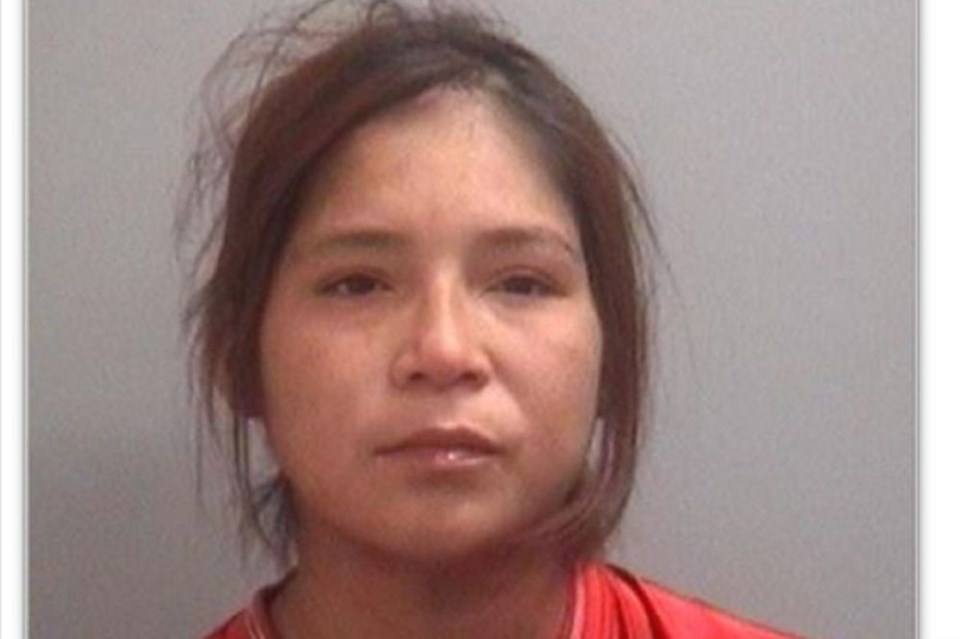THUNDER BAY -- Adrienne Masakeyash hopes the animals in the wilderness near Pickle Lake dig up her niece’s body over the winter so she can be laid to rest in Mishkeegogamang First Nation.
Charnelle Masakeyash was the last indigenous woman in Northwestern Ontario to be officially declared missing before the new Liberal government called a national inquiry into missing and murdered indigenous women and girls on Tuesday.
Ontario Provincial Police called off the search on Nov. 20 after the 26-year-old mother of three was declared missing Nov. 8.
In Mishkeegogamang, a combination of mourning and searching continues.
“I’m hoping people will continue until we find her, even after the snow comes,” Adrienne said.
“I’m hoping for the animals to dig her up or something. That way our people who are still walking and searching can bring her home.”
Even as the government in Ottawa promised to reach to the root causes of missing and murdered indigenous women, Charnelle’s family and community can see those roots on the surface.
Charnelle’s father was found dead outside of a house in Pickle Lake and her mother, who was a residential school survivor, died as a result of alcoholism.
Adrienne took on raising three of her sister’s children through their teenage years, including Charnelle.
Charnelle had three children with James “J.R.” Fox. They were placed in care before J.R. died in one of a series of houses fires in the community. He was one of 27 Mishkeegogamang members to do so since 1977, including three of his mother’s siblings.
Charmelle was last seen in Pickle Lake on Nov. 4.
Mishkeegogamang Chief Connie Grey-McKay led a group of 60 to 70 people from as far away as Fort Hope and Cat Lake First Nations to begin searching the land on Nov. 10. She said a single OPP officer took statements a day later and on Nov. 13, a 30-member force including canine units and rangers began searching the area Charnelle was last seen.
Through whipping rain and snow, Adrienne said the entire community mobilized in the search for Charnelle. She recalled the visions of medicine men that were called to the scene. Charnelle had been assaulted, they told the family, and she was buried in a shallow grave.
Some community members doubted Charnelle was missing but Adrienne knew for sure.
“I was really heartbroken thinking there was no one helping trying to find her,” Adrienne said.
“My feeling was too many people think she just hitchhiked out and left and forgot her family. I believe she’d never do that to her children so close to Christmas. That was the one time a year she got to see them and she was always looking forward to spending Christmas with her children.”
Grey-McKay was among those who held hope when the police dogs and technology took up the cause. She was also among the heartbroken when the campaign ended a week later.
“The child welfare system is a huge issue in the lives of people,” she said, adding healing lodge programs that lasted seven years showed results but Indigenous Affairs ultimately cut their funding.
“It’s just tragedy upon tragedy. We don’t have the resources for counseling… It’s intervention rather than prevention. Working with this young couple would have been the right thing to do -- working through them with their own loses.”
Funds continue to be raised to provide gas and hot meals for members of Mishkeegogamang who are still out scouring the land.
“To understand in order to understand why missing and murdered women are at risk, you must understand that factors that cause women to be in lifestyles that are high risk,” Grey-McKay said.
A survivor of a 20-year abusive relationship, Grey-McKay related factors that led to Charnelle’s disappearance to broader issues of First Nation independence and land-based resource-sharing.
“The biggest thing is the backdrop in my First Nation and probably many others is based on historical oppressive factors like resource development,” Grey-McKay explained.
“There’s nothing tangible given back to the community. It’s incredible to believe around Mishkeegogamang there are five separate mines. Have those mines ever given back to the community? No. Is there clinical support from people who are going through trauma after trauma? No. That’s complicated by the fact that they don’t have housing and not enough money for it.”
It’s the kind of story Coralee McGuire-Cyrette has heard before. McGuire-Cyrette is the interim executive director of the Ontario Native Women’s Association, which has been advocating an inquiry into missing and murdered indigenous women and girls for years.
“People don’t see it. There isn’t a certain law that has to be changed to fix this," she said.
“There’s a close connecting factor in the Truth and Reconciliation report. You’re looking at intergenerational trauma as a result of residential schools in terms of the rates of violence, inter-generationally. The cycle of violence that has been perpetuated against us for many, many years. Even before we were born, these systems have been in place.”
Sign in or register
- Messages
- Post a Listing
- Your Listings
- Your Profile
- Your Subscriptions
- Your Likes
- Your Business
- Support Local News
- Payment History
Registered Users
Already have an account?
New Users
Create a free account.
